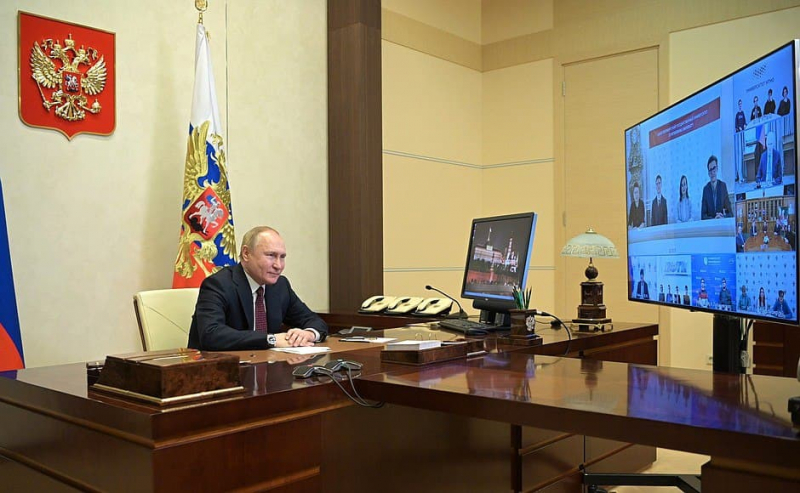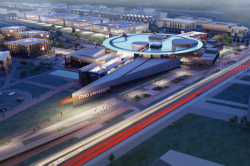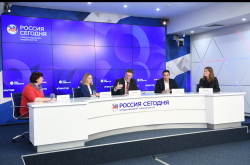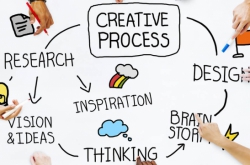Students of mathematics- and IT-focused programs who have won Russian and international competitions, such as the International Mathematical Olympiad (IMO) and the International Mathematics Competition (IMC), as well as the International Collegiate Programming Contest (ICPC), took part in the meeting that was held via video call.
Among the participants were students from Lomonosov Moscow State University, Moscow Institute of Physics and Technology, St. Petersburg State University, Novosibirsk State University, Lobachevsky State University of Nizhny Novgorod, and ITMO University, which was represented by four students of the Information Technologies and Programming Faculty.
Mikhail Galibov won the Kurchatov math competition two years ago; Alexander Eliseev won various math competitions for school students three years in a row – from 2019 to 2021; Vitaly Egorov became a gold medalist at a computer science and programming competition for school students last year; and Daniil Kazantsev won Google Science Fair after developing a system for rehabilitation of people with hearing and speaking impairments (you read more about it here).
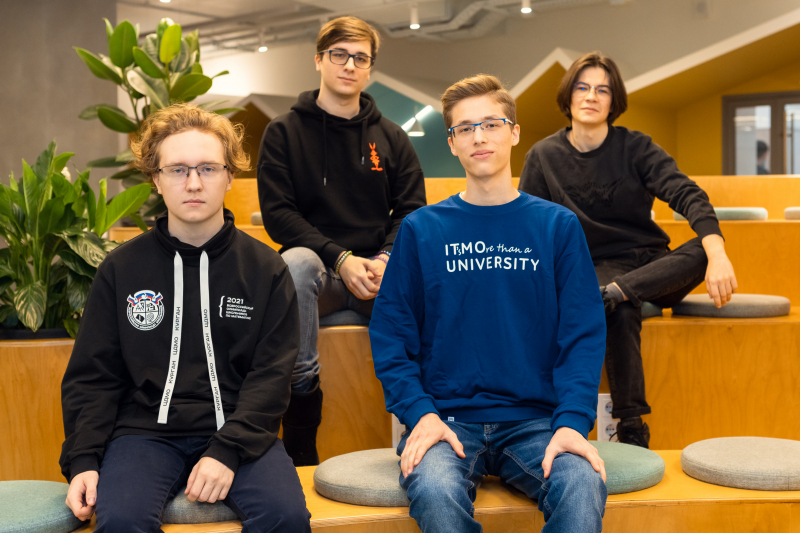
Alexander Eliseev, Vitaly Egorov, Mikhail Galibov, and Daniil Kazantsev. Credit: Dmitry Grigoryev, ITMO.NEWS
The Minister of Science and Higher Education of Russia Valery Falkov and aide to the president of the Russian Federation Andrei Fursenko also joined the conversation.
As the president noted, Russia has always been famous for its mathematicians – it is thanks to the foundation laid by Aleksandr Aleksandrov, Andrey Kolmogorov, and other prominent scientists that Russian school and university students still dominate various international competitions. At the same time, math has never been an abstract field of studies – this science lies in the basis of key technologies, so it’s crucially important to provide top-quality education in this field.
The students shared their ideas on how such training should be carried out with the president. They discussed how schools specializing in physics and mathematics should develop, including those outside major cities, what kind of support young scientists need, and how to make education in mathematics more attractive to school students. ITMO students focused on the development of new models of education, a comfortable environment at universities, and also talked about the construction of ITMO Highpark, a world-class science, education and innovation center that will be located in the satellite city Yuzhny.
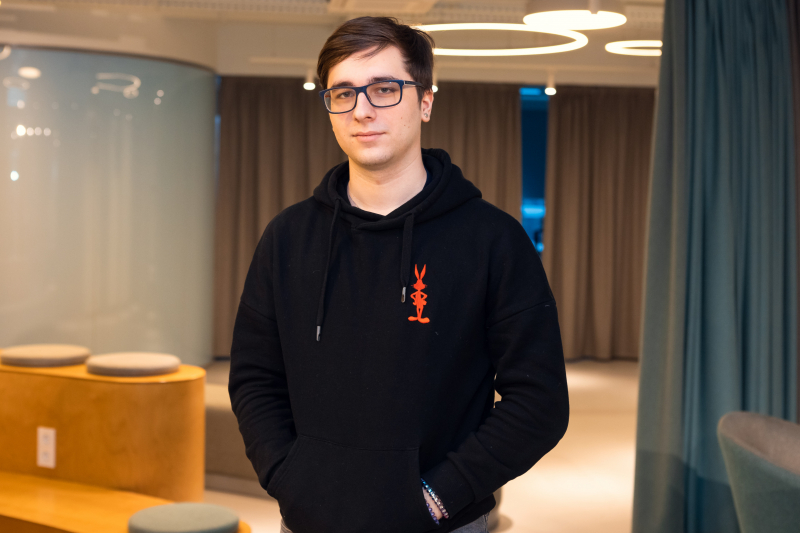
Mikhail Galibov. Credit: Dmitry Grigoryev, ITMO.NEWS
Modules and a new environment
According to Mikhail Galibov, we should switch to new learning models if we want to create an efficient educational system. Spending four years in Bachelor’s studies and two years in Master’s studies no longer works. Mikhail suggests a 2+2+2 system that might be more efficient and comprehensible for students. For two years, they would study fundamental subjects, then they would focus on elective applied courses in order to acquire practical skills in their field, and in the last two years, they can choose a new related major that would allow them to work at the intersection of different fields.
Mikhail is a first-year Bachelor’s student but already knows what he would like to do in the future – either video game development or neural technologies and bioengineering. According to him, his program at ITMO University makes it possible to choose an individual learning track. For example, students can pick up an Android development course by JetBrains and start doing industrial programming while studying.
“Some of my classmates have already decided on what they want to do and an in-depth study of subjects that aren’t really related to their future profession seems pointless. That’s why we would need the next two years of studying to have a strong focus on specific subjects. I think it will be much more interesting for students to study what they really like and what they would like to apply in their work. Modules will also allow them to study related areas and make it possible to become a scientist if they prefer to. The learning process would become more productive and efficient. At ITMO, students already have the opportunity to take part in practical activities,” he said.
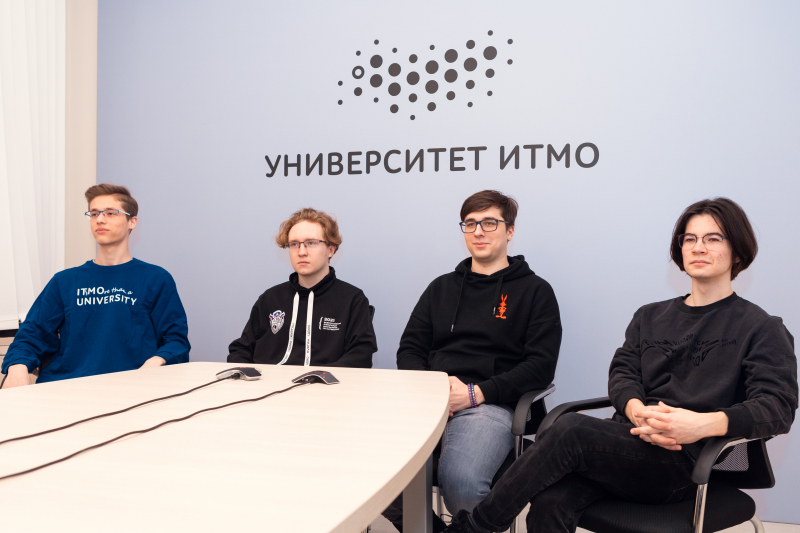
Vitaly Egorov, Alexander Eliseev, Mikhail Galibov, and Daniil Kazantsev at the meeting. Credit: Dmitry Grigoryev, ITMO.NEWS
At the same time, such educational models are impossible without creating a new environment for learning and creativity. One of the key elements of this environment are new locations where students can study and communicate in an informal setting. At ITMO University, such places already exist – namely, coworking spaces that function on two campuses and are open 24/7. According to Mikhail Galibov, this makes it possible to create a more flexible schedule and engage in group projects and self-education.
He added that new formats that allow students to customize their education should also become a key concept for ITMO Highpark, a science, education, and innovation center that is being built under the World-Class Campuses program.
Vladimir Putin supported him in this regard. According to the president, the government is already engaged in the support of new educational formats and they should lie at the foundation of the learning process at modern university campuses, a network of which is planned to be created by 2030.
“The opportunity to fine-tune your specialization after two years of studying and then finalize your decision in the last two years provides us with a more flexible educational system. The creation of a comfortable environment, including coworking spaces, is also a part of this concept. We work in this field, for example, by implementing the modern campus program,” he said.
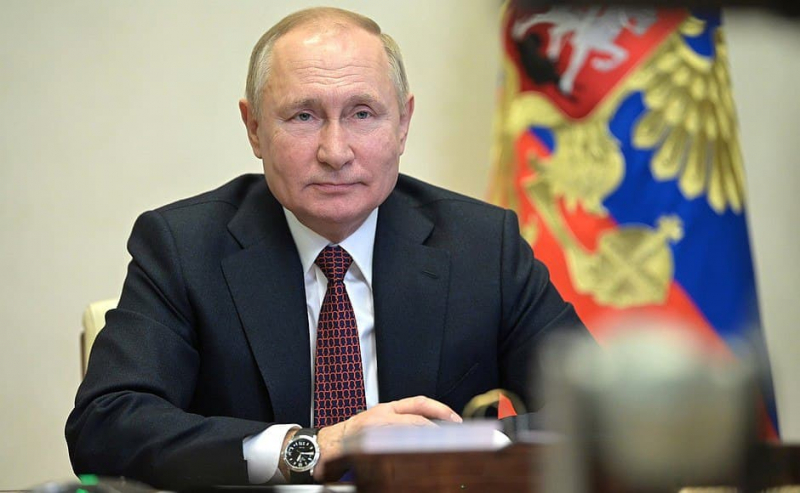
Vladimir Putin at the meeting. Credit: kremlin.ru
Vladimir Putin also mentioned that the ongoing Priority 2030 program, which involves over 100 leading universities, is designed to provide general support to higher education institutions.
“We should focus on creating a comfortable educational environment. We will continue to work on that, but we also hope to receive some feedback from students to find out what works and what should be changed,” he said.
Support for competition winners
Among other topics, the participants discussed the size of student stipends and grants for competition winners. According to Vladimir Putin, talented Russian school and university students regularly bring their country victories at international competitions in mathematics and computer science and deserve to be rewarded.
Presidential aide Andrei Fursenko noted that major companies compete for such students, while minister Valery Falkov added that universities give them certain benefits, such as enrollment privileges. However, Vladimir Putin suggested making further improvements in terms of financial support of competition winners.
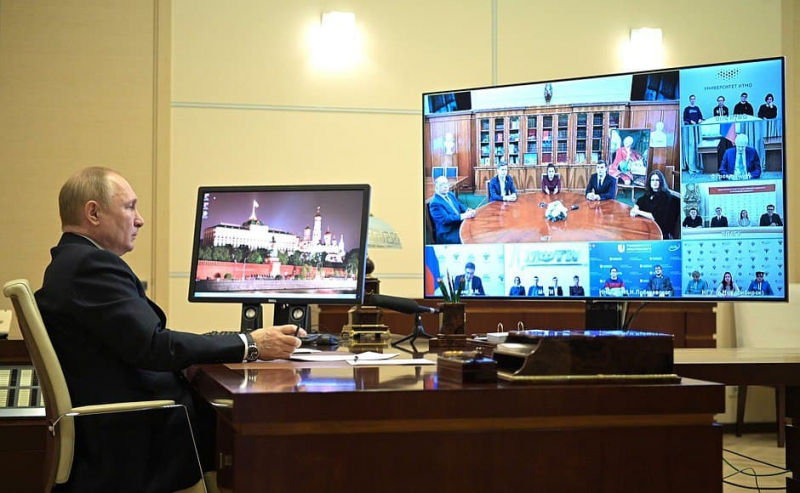
Vladimir Putin at the meeting. Credit: kremlin.ru
“Speaking of financial support, including stipends – we’ll come up with possible options. Of course, this support should be rather special,” says Valery Falkov.
In 2022, Russia will host a landmark event in mathematics: on July 6, the International Congress of Mathematicians, the largest and most influential conference among scientists in this field, will begin in St. Petersburg. As the president emphasized, Russia hosted such a large-scale event only once, in 1966. The congress is expected to bring together over 5,000 leading scientists from around the world. In addition, special mathematical conferences will be held at the country’s leading universities throughout the year.
